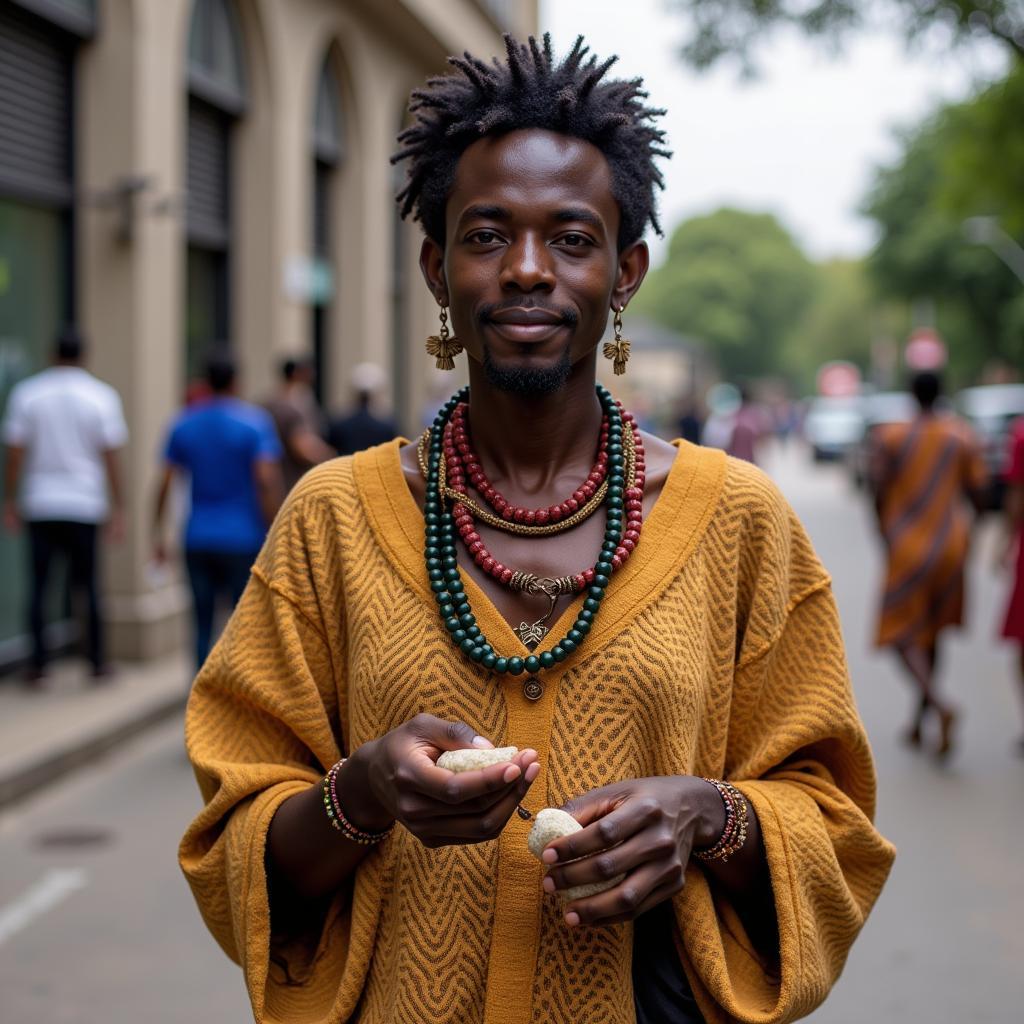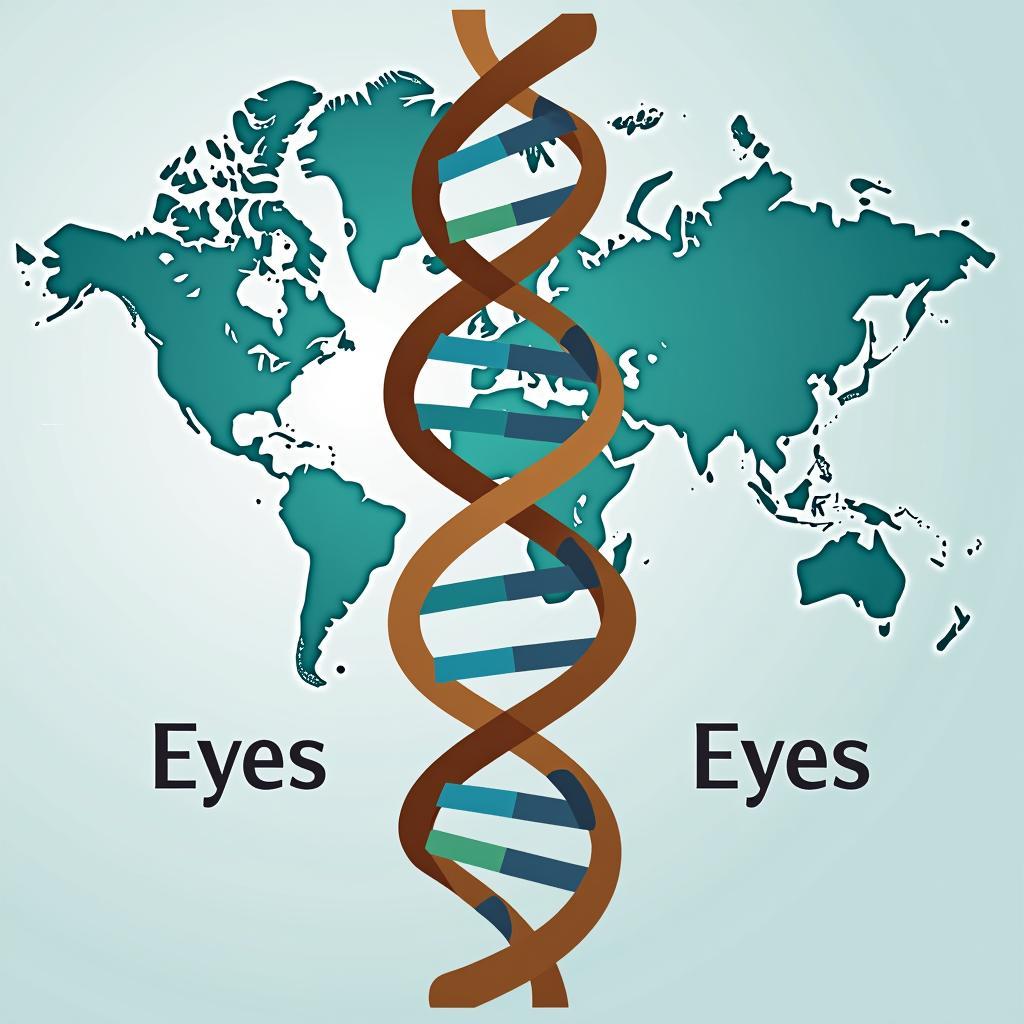Unmasking African Juju: Exploring the Mystical and the Misunderstood
African Juju is a term often shrouded in mystery, evoking images of potent rituals and supernatural forces. In this exploration, we’ll delve into the heart of this complex practice, separating fact from fiction and understanding its significance within various African cultures. We’ll uncover the historical roots, diverse practices, and the enduring influence of African juju. african juju stories
What is African Juju? Unveiling the Core Concepts
African juju isn’t a monolithic entity but rather a diverse set of spiritual beliefs and practices found across the continent. It encompasses traditional medicine, divination, and spiritual protection, often intertwined with animistic beliefs and ancestor veneration. While often portrayed negatively in Western media, juju plays a significant role in many African communities, offering guidance, healing, and a sense of connection to the spiritual realm.
At its core, juju recognizes the existence of spiritual forces that can be accessed and influenced through rituals, charms, and the use of natural elements. This belief system acknowledges the interconnectedness of the physical and spiritual worlds, emphasizing the importance of maintaining balance and harmony.
The Historical Roots of African Juju: Tracing its Ancient Origins
Juju’s roots are deeply embedded in Africa’s rich history, predating the arrival of major religions. Its origins lie in indigenous spiritual systems that revered nature, ancestors, and the power of unseen forces. These practices evolved over centuries, adapting to changing social and cultural landscapes.
Diverse Practices and Beliefs: A Spectrum of Juju Traditions
Juju practices vary significantly across different regions and ethnic groups in Africa. While some traditions focus on healing and protection, others may involve divination or rituals to influence events. This diversity reflects the continent’s vast cultural tapestry.
Juju in West Africa: Exploring Yoruba Traditions
In West Africa, particularly among the Yoruba people of Nigeria and Benin, juju is deeply integrated into daily life. Traditional healers, known as babalawos or herbalists, play a crucial role in administering juju for healing and spiritual guidance. They utilize herbs, incantations, and rituals to address physical and spiritual ailments.
Dr. Adeola Oni, a prominent anthropologist specializing in Yoruba culture, explains, “Juju is not simply magic; it is a complex system of knowledge and practice that addresses the spiritual, physical, and social needs of the community.”
Juju in East Africa: Understanding Regional Variations
East African juju traditions, while sharing some similarities with West African practices, often incorporate unique elements reflecting local beliefs and customs. For example, the use of amulets and talismans for protection is common in many East African communities. These objects are believed to be imbued with spiritual power, offering safeguards against negative energies and misfortune. african joyous music
Juju in the Modern World: Adapting to Contemporary Society
Despite the influence of modernization and other religions, juju continues to hold a significant place in many African societies. It adapts and evolves, reflecting the changing times while preserving its core principles.
 Modern African Juju Practitioner
Modern African Juju Practitioner
Professor Kwame Asante, a renowned scholar of African religions, notes, “Juju is not static; it is a living tradition that continues to adapt to the changing needs and realities of African people.” african kumar sanu wikipedia
Conclusion: Appreciating the Complexity of African Juju
African juju, far from being a simplistic notion of magic, represents a rich and complex tapestry of spiritual beliefs and practices. Understanding its historical roots, diverse expressions, and enduring relevance provides valuable insight into the cultural and spiritual landscape of Africa. Further exploration of African juju is crucial to dispel misconceptions and appreciate its profound significance.
FAQ
- What is the purpose of African juju?
- How does African juju differ across regions?
- Is African juju related to witchcraft?
- What role do traditional healers play in juju practices?
- How is African juju viewed in modern society?
- Are there any ethical considerations surrounding the practice of African juju?
- Where can I learn more about specific African juju traditions?
Common Situations and Questions:
- Seeking protection from harm or negative energies.
- Finding solutions to personal or community problems.
- Seeking healing for physical or spiritual ailments.
- Understanding one’s destiny or seeking guidance for the future.
Further Exploration:
Explore more about african fucking pussy and african fuck on bed.
Need Help?
For further assistance, contact us at +255768904061, kaka.mag@gmail.com, or visit us at Mbarali DC Mawindi, Kangaga, Tanzania. Our customer care team is available 24/7.



